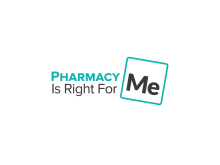Admissions Workshop
AACP hosts a 2-day Admissions Workshop in conjunction with the AACP Annual Meeting in July. These sessions address trends in pharmacy school admissions and topics related to PharmCAS users. Learn more about the Annual Meeting and more programming here.
Criminal Background Check Resources

Background Check Resources for Student Affairs Personnel
AACP organized an ad hoc Criminal Background Check Advisory Panel in 2006 to identify common problems and possible strategies to assist members with this rapidly evolving issue. The panel recommended that all U.S. pharmacy schools procure a national background check on applicants upon their initial, conditional acceptance to pharmacy school. The rationale is based on a number of issues, including:
- A growing number of national healthcare organizations, institutions and state legislatures require student pharmacists to complete a criminal background check (CBC) at least once during their educational career.
- Background checks are commonly required for hospital staff, as well as individuals who work or volunteer with children or other vulnerable populations, which include student pharmacists.
- Student pharmacists may be subject to criminal background checks earlier in their educational career and more often than medical school students due to introductory pharmacy practice experiences (IPPEs).
In support of this recommendation, AACP initiated a PharmCAS-facilitated national background check service, through Certiphi Screening, Inc. to procure a national background report on applicants at the point of acceptance. AACP has initiated this new service in order to recognize the desire of pharmacy schools to procure appropriate national criminal history reports and to prevent applicants from paying additional fees at each pharmacy school to which they are accepted.
Pharmacy schools not participating in the PharmCAS background check service may also require applicants to undergo a separate background check process.
Visit the PharmCAS website for list of participating colleges and schools.
Other Resources
Wellness and Resilience in Pharmacy Education

AACP Statement on Commitment to Clinician Well-being and Resilience
The American Association of Colleges of Pharmacy (AACP) is deeply committed to collaborating with other health profession organizations and stakeholders to promote positive well-being and resilience among health care providers, educators, and students. AACP recognizes that stress and anxiety can have devastating consequences on mental health, student learning, patient care, and the community at large. AACP has adopted two policy statements to demonstrate its commitment to well-being in pharmacy education. View the full statement.
AACP encourages schools and colleges of pharmacy to proactively promote overall well-being for students, faculty, and staff.
AACP believes that all administrators, faculty, staff, preceptors, student pharmacists and alumni should contribute to a culture of well-being in pharmacy education.
AACP believes that school and college leaders (e.g., deans, department chairs) are responsible for creating positive working and learning environments through an appropriate balance of expectations and resources or support.
AACP provides resources to assist pharmacy colleges and school in creating a culture of wellness and building positive wellbeing among students, faculty, preceptors, and staff.
Resource Guide
The Creating a Culture of Well-Being: A Resource Guide for Colleges and Schools of Pharmacy was created in response to the growing prevalence of burnout, disengagement, and other forms of work-related ill-being across the health professions. Organizations have been increasingly shifting their focus to the most common source of the problem—the environment in which people work and learn. To that end, the 2021–2022 AACP Student Affairs Committee was charged with developing a resource to aid colleges and schools of pharmacy in their endeavors to support the well-being of faculty, staff, and students. Recognizing that the threats to well-being are often unique to each organization, this guide details a process by which schools can explore their specific needs related to well-being and then address these challenges through a continuous cycle of organizational change, with a focus on changes to policies and practices and a redesign of the work environment.
Related AACP Standing Committee Reports
- Report of the 2017–2018 Student Affairs Standing Committee
- Report of the 2016–2017 Student Affairs Standing Committee
Past Institutes
After a successful 2018 Fall Institute, AACP provided an encore 2019 Spring Institute, "Strategies to Promote a Culture of Well-being among Students and Faculty." The Institutes recognized that stress, anxiety and tragedy are disruptive to student learning. Colleges and schools of pharmacy should provide mindful programs to support an environment of well-being for students, and faculty, which will help minimize the impact of these pressures.
Substance Abuse
The Pharmacy Educator’s Role in Prevention and Recovery
Guidelines for the Development of Addiction and Related Disorders: Policies for Colleges and Schools of Pharmacy
Substance Abuse Education & Assistance SIG on AACP Connect
Literature
Below is a list of selected articles on well-being and resilience in academic pharmacy published in the American Journal of Pharmaceutical Education (AJPE).
- Assessment of Burnout and Associated Risk Factors Among Pharmacy Practice Faculty in the United States
- Heart of Pharmacy: A Course Exploring the Psychosocial Issues of Patient Care
- Incidence of Self-Reported Depression Among Pharmacy Residents in Tennessee
- It is Time to Confront Student Mental Health Issues Associated with Smartphones and Social Media
- Perceived Stress, Stressors, and Coping Mechanisms Among PGY1 Pharmacy Residents
- Quantitative and Qualitative Factors Associated with Social Isolation among Students from Graduate and Professional Health Science Programs
- Review of Grit and Resilience Literature within Health Professions Education
- The roles of empathy, attachment style, and burnout in pharmacy students’ academic satisfaction
Kira Talent Resources

AACP is pleased to announce its partnership with Kira Talent to provide colleges and schools of pharmacy with access to a holistic admissions solution designed to support a more efficient, effective, and fair admissions process. Schools can opt to leverage the Kira platform to better engage with applicants and gain an authentic view of their non-cognitive skills and competencies, as well as verbal and written communication skills. Explore Kira’s recruitment, reviewing, and admissions tools, including:
- Asynchronous Assessments: Evaluate an applicant’s verbal and written communication skills with unrehearsed and unscripted timed video responses and timed written responses to your school’s customized questions.
- Live Interviewing: Conduct one-on-one, panel, or MMI interviews online with a robust platform that automatically places participants in the right interview rooms at the right times.
- Built-In Scoring: Schools can utilize custom rubrics and flexible review to gain independent feedback from their reviewers.
- Fully Branded Experience: Enhance your marketing and recruitment efforts with branded welcome pages and pre-recorded videos that help applicants see what makes your program, school, and campus culture unique.
Liaison International has also entered into a partnership with Kira Talent to incorporate Kira’s Asynchronous Assessments directly into PharmCAS and other CAS applications. Once the assessments are completed, schools can access applicant responses directly in WebAdMIT. Non-PharmCAS schools are also invited to use Kira Talent. Kira’s pricing varies based on the level of utilization, and flexible payment options are available.
This partnership aligns with the AACP Strategic Plan to support holistic review in admissions and increase the diversity of the pharmacy applicant pool.
About Kira Talent
Kira is the world’s only holistic admissions solution designed for higher education. Talk to Kira’s Partnerships team to learn more at kiratalent.com/lets-talk/.
Professionalism

Professionalism Resources
AACP Social Media Resource Guide for Faculty, Students, Staff, and Administrators - Resource guide produced by the 2021–2022 AACP Professionalism and Social Media Task Force.
AACP Social Media Infographic for Students - One-page PDF designed to help student pharmacists better navigate some of the potential pitfalls of social media use in pharmacy education and practice.
Faculty Student Pharmacist Pledge of Professionalism - A model for schools to adapt for their use.
APhA-ASP/AACP Pharmacy Professionalism Toolkit for Students
Student Conduct and Honor Code Materials - Summary from schools and colleges of pharmacy distributed at regional meeting on student behavior (2005)
White Paper on Professionalism - Recommendations of the APhA-ASP/AACP-Council of Deans Task Force on Professionalism (1999)
TurnItIn.com - The online plagiarism checker is used by PharmCAS to detect plagiarism in applicants’ personal statements. Turnitin scours the web to match content submitted by applicants to that found on web pages, archived student papers, and published articles. Matches are then documented into a Similarity Report that shows what percentage of the statement matches content found on the web. Similarity Report is provided to every program to which each applicant applies.
Oath of a Pharmacist

The Oath of a Pharmacist was first developed in 1983 by the AACP Board of Directors and revised in 1994, 2007, and 2021. The current Oath of a Pharmacist was adopted by AACP and APhA in November 2021 and reflects the organizations’ commitment to diversity, equity, inclusion, and anti-racism.
- Oath of a Pharmacist (PDF) - Designed to fill the page with no customization space
- Oath of a Pharmacist (Small space PDF) - Designed for schools to be able to print with a recipient name. Space available:
- 0.5625 inches high, starting 9.125 inches from the top edge of the page
- 5.75 inches wide, starting 1.375 inches from the left edge of the page
- Oath of a Pharmacist (Large space PDF) - Designed for schools to add their logo. Space available:
- 1 inch high, starting 8.75 inches from the top edge of the page
- 5.75 inches wide, starting 1.375 inches from the left edge of the page
Recruitment Campaign
Pharmacy Is Right for Me is an educational campaign that aims to inspire and foster the next generation of pharmacy leaders in the United States. It provides students, parents, and educators with interactive tools, resources, and first-person testimonials that give insight into the exciting and diverse career opportunities that exist within the field of pharmacy.
Resources for Student Affairs Personnel
Non-Traditional Students

Post-B.S. Pharmacy Programs
Pharm.D. Degree Programs for Practitioners
Pharmacists who previously earned a bachelor of science (B.S.) degree in pharmacy can choose to pursue a Pharm.D. degree.
The future of pharmacists' success lies in their abilities to manage their patients' drug therapies. They must have the knowledge and skills to do so. Colleges and schools of pharmacy have developed programs to assist practitioners in acquiring these skills. These educational offerings are similar to those offered to full-time student pharmacists: they are rigorous, educationally sound, based on achieving predefined practice competencies, and associated with assessments of learning. Because these programs are offered to practitioner students outside the traditional pharmaceutical education locale, they are called non-traditional educational programs. Generally, these programs provide education through distance learning techniques, such as videotaped lectures, interactive computer or satellite television.
AACP and pharmacy school faculty are exploring ways to make non-traditional education even more non-traditional. For example, educational experiences in which practitioners learn in their own practices, from their own patients are being used by several schools. Other schools are trying computerized, educational linkages between practitioner students and pharmacy school faculty.
To learn more, the Post-BS Pharm.D. Programs page provides information on colleges and schools of pharmacy currently offering non-traditional Pharm.D. programs. Contact schools directly for more information on these post-B.S. pharmacy programs.



